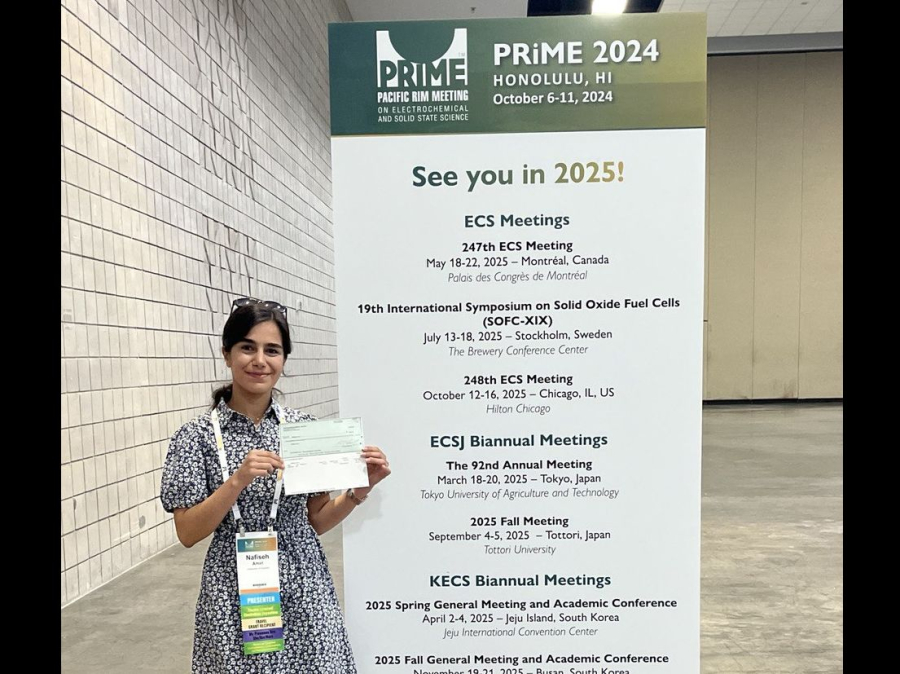A doctoral student at the Cullen College of Engineering is now back at the University of Houston, after having successfully presented her research in Hawaii thanks to a travel grant from the Electrochemical Society (ECS).
Nafiseh Amiri is a Ph.D. candidate in Electrical and Computer Engineering. Her advisor is Stanko R. Brankovic, a professor and a Fellow of the ECS. She received the grant to present her research, “Room Temperature Synthesis of Hydrogen Permeation Barrier for Storage and Transportation Application.”
Amiri noted that she could not have succeeded without Brankovic's support.
“I am truly honored to receive this award and am profoundly grateful to ECS for this recognition, as well as to my advisor, Dr. Brankovic, for his unwavering support,” she said. “Hydrogen is viewed as a key energy carrier for a sustainable future and carbon-free economy. Our research primarily focuses on design and development of metallic thin-film coatings as hydrogen permeation barriers into natural gas pipelines thus enabling their retrofit for hydrogen delivery.”
Founded in 1902 in Philadelphia, the Society now has more than 8,000 members in more than 85 countries. It focuses on electrochemical and solid state science and technology, and related fields. PRiME 2024, the 247th meeting of the ECS, took place in Honolulu from Oct. 6-11.
Amiri described the research she presented on as developing thin-film coatings to serve as hydrogen permeation barriers (HPBs) for repurposing natural gas pipeline networks for hydrogen transport and storage.
“We have adopted a strategy for HPB synthesis based on the electroless Cu-deposition process by exploring a variety of reducing and complexing agents,” she said. “Our optimized solution design favored a strong driving force for Cu reduction, resulting in high nucleation rates and films with minimum concentration of defects and dense grain boundaries.”
Amiri identified two areas for future research.
“First, we intend to enhance our understanding and elevate the quality of Cu-based HPB films, targeting a permeation reduction factor of 1000,” she said. “Second, we aim to create a diffusion-based model for permeation simulations, considering various materials, impurity levels, and thicknesses.”
Amiri hopes to work in a research and development role within the industry.
"As a dedicated researcher in the field of synthesis of thin film coatings, I am deeply passionate about exploring the cutting-edge deposition methods, characterization tools and atomistic modeling to investigate phenomena such as defects behavior, diffusion processes, and phase transition," she said. "In the future, I aspire to work in a research and development role within the industry where I can integrate these approaches, enabling me to optimize the properties of thin films at micro/nano scale. I aim to bridge the gap between theoretical predictions and experimental outcomes, leading to the design of advanced coatings with tailored properties for electronics and energy applications."
She added, "I believe that through innovative research, we can address pressing challenges in energy efficiency and material durability. Collaborating with interdisciplinary teams has been instrumental in my development, allowing me to integrate diverse perspectives and methodologies into my work."
